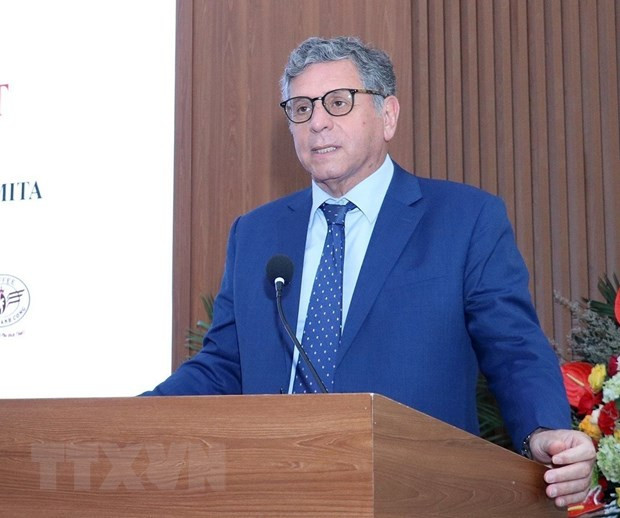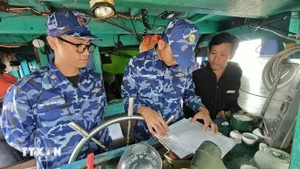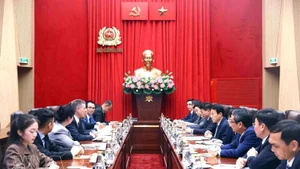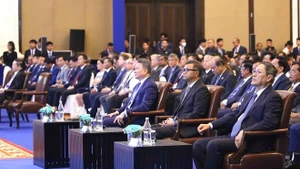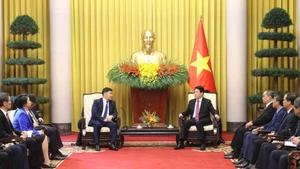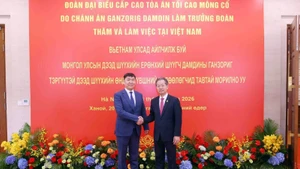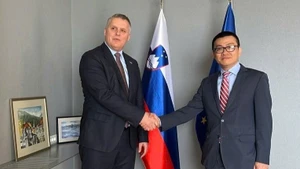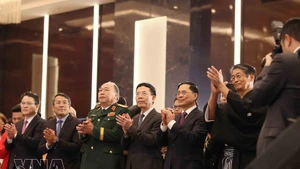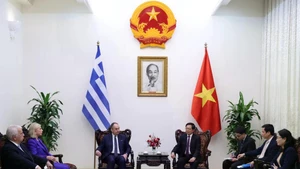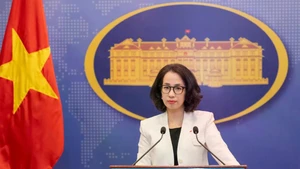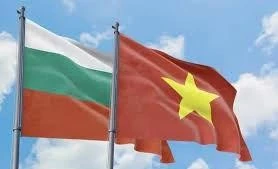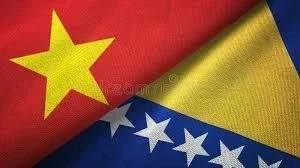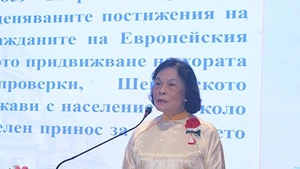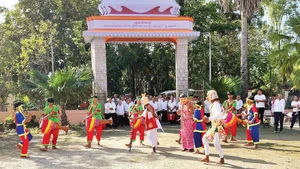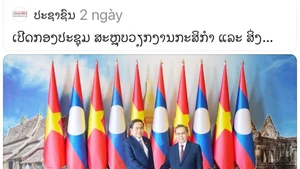Reporter: Could you please share your expectations about Prime Minister Pham Minh Chinh's official visit to Brazil?
Ambassador Marco Farani: I think the bilateral relations between Brazil and Vietnam is very promising although we have been very distant from each other. In the last few years, but I remember that President Luiz Inácio Lula da Silva who is now in his third mandates as the President of Brazil visited Vietnam before and I think he might come back again.
He was invited by the President of Vietnam, and next year, we have 35 years of diplomatic relations and I think it's a good opportunity to receive the President of Brazil here in Vietnam.
Brazil and Vietnam maintain a comprehensive bilateral cooperation, characterized by balanced relations and mutual respect. Recently, President Lula da Silva and Prime Minister Pham Minh Chinh met at the G7 meeting, held in Hiroshima last June. At the opportunity, President Lula invited the Prime Minister to visit Brazil.
It is with great joy and enthusiasm that we are waiting for the Prime Minister's visit in the last week of the current month. The visit of the Prime Minister Pham Minh Chinh will bring the two countries closer to each other and there are a lot of fields in which we can work together.
Reporter: Currently, Brazil is Vietnam's leading trade partner in Latin America. Could you comment on the potential for bilateral economic cooperation in the coming time?
Ambassador Marco Farani: Our trade balance is around 7 billion USD, but there is enormous potential to be explored in the areas of agriculture, green energy and defense. Brazil is one of the largest economies in the world, ranking 9th or 10th place in the world in terms size of its economy.
The presence of Brazil exports to the countries of Southeast Asia can be attested by the growth of our trade with the region (from 15.1 billion USD to 28.9 billion USD). In the first half of 2022 alone, Brazil's trade with ASEAN increased by 91%, registering USD 17 billion. In 2022, Brazil became a Partner of the ASEAN Sector Dialogue, counting with the valuable support of Vietnam. I take this opportunity to reiterate our gratitude to the government of Vietnam.
Brazil has been optimistic about the growth and economic dynamism of Vietnam. Vietnam is a fast-growing country, probably be a middle-income country in the next 10 years. Brazil has 220 million inhabitants with large populations. Brazil is rich in natural resources, and then also has a booming agricultural. So there are a lot of areas in which we can work together.
Another area in which I think we have bright partnership to engage which is renewable energy. In Brazil, 93% of its electricity comes from renewable energy and that is something that we can share with Vietnam and can help Vietnam to lower its emissions in the future.
Reporter: Green and sustainable growth is a development orientation that is receiving special attention from many countries around the world, including Vietnam and Brazil. In your opinion, how could the two sides cooperate in this field?
Ambassador Marco Farani: Brazil is an example of a green economy. With regard to the environment, it is worth a mentioning that about 90% of the Brazilian energy matrix today is renewable, a true inspiration and hope for the whole world, in which the energy transition is urgent, in order to fulfill the commitments made of net zero emissions of CO2 by 2050. Thanks to the use of ethanol, which began to be developed in Brazil about fifty years ago, when the first oil crisis occurred, Brazil currently has the largest and most complete decarbonization program in the world, 93% of the cars produced in Brazil are today powered by renewable and green fuel.
So we can share most of these experiences with Vietnam, especially in ethanol to achieve goal of the net-zero emissions by 2050. Green economy is a challenge for every country and also is a commitment every country has made.
Reporter: What are your expectations about the prospects of cooperation between the two countries at both bilateral and multilateral levels in the coming time?
Ambassador Marco Farani: I think the prospects are more trade, more tourism between our countries, cooperations in agriculture, energy and education. I also hope for more political alignment, political dialogues. Both countries belong to the Southern Hemisphere. We have seen aspirations and both countries are leaders and have specific importance in these regions. So it's very important that our two leaders to meet and start dialogues with these.
In the international sphere, Brazil has just assumed the Pro-tempore presidency of Mercosur where it intends to work on deepening the intra-bloc dialogue, aiming at the expansion of free trade between regional markets. The FTA between Mercosur and Vietnam is a goal by both sides. President Lula has already declared that he will work with the other leaders in Mercosur in order to accelerate the agreement with Vietnam.
Starting next year, Brazil will assume the Presidency of the G20, unique opportunity to foster coordination among members in defense of a more just, sustainable and peaceful international community.
